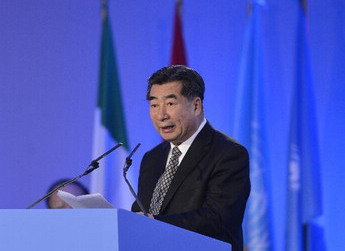
Tim Dunne, director of Asia-Pacific market intelligence at consumer-research firm JD Power and Associates, said China has been "very important" to GM ever since the company began investing heavily there in the late 1990s.
"At the time, Chairman John Smith said GM needed to do anything necessary to get into China," Dunne said.
While US automakers are technically capable of creating significant sales in China, he said, uncontrollable factors such as economic upheaval, political issues or an earthquake can affect performance.
"Nobody wants to lose China," he said. "Once you get out of that market, then things become even more difficult."
Global research and consulting firm KPMG said in a survey released in January that China is the top investment destination for global automakers due to its robust domestic demand.
"China remains a highly attractive market due to its long-term growth potential. It's no surprise that automakers are placing more big bets in China, and doing so ahead of the other markets," said Andrew Thomson, Asia-Pacific head of automotive and a partner of KPMG China.
The global listing of luxury vehicle brands is another perfect illustration of China's importance to foreign players.
German luxury car brand Audi's global success is greatly attributed to its prosperous sales in China — its largest market in the world — as it has almost exclusively controlled the nation's high-end official car market since it locally produced its flagship model, the A6, in 1999.
Its image as an official car boosted its sales and helped Audi for years beat its rivals, BMW and Mercedes-Benz, to top China's luxury car market.
The dominant leadership in China even helped Audi maintain the world's No 2 position in the sector for two years, behind BMW and followed by Mercedes-Benz.

















 Young Spanish scientist has a career 'made in China'
Young Spanish scientist has a career 'made in China'


![]()
